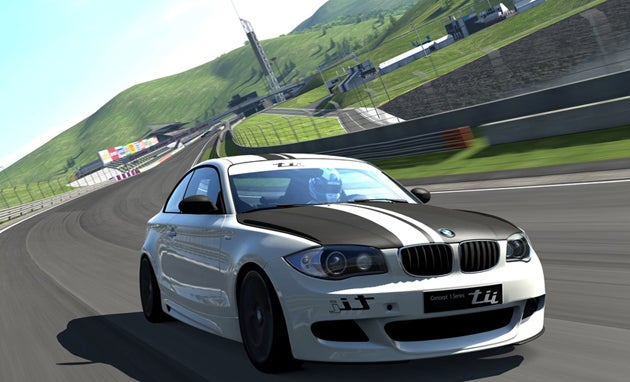From Gran Turismo to real life racing: Why we shouldn't be so surprised at Jann Mardenborough's transformation
Using force-feedback steering wheels, the game was able to simulate reality

Sometimes, just sometimes, games have an unwanted effect on the brain of the player that transfers into the real world.
Only this weekend, having completed The Last of Us: Left Behind, my subsequent walk to the newsagent was punctuated with the sudden urge to duck behind a few cars and stealthily make my way past a couple of neighbours chatting among themselves at the end of the road.
Had I done so, I would have looked pretty barmy, especially if I followed this up by lobbing some bricks or bottles in the opposite direction to put them off my scent. But it's not the first time this has happened.
Extended plays with Tetris made me yearn to rearrange the bricks of houses so that they would fill up windows and doors. Such madness even has a name: Tetris Syndrome. According to Wikipedia, it “occurs when people devote so much time and attention to an activity that it begins to pattern their thoughts, mental images and dreams.” Thankfully these effects are short-term for most of us and they wear off after 30 minutes or so (certainly don't let it put you off playing Left Behind: it's poignant, emotional and compelling).
But the action in some games can have a longer-lasting and more positive effect. Jann Mardenborough, a 22-year-old from Cardiff, has become so adept at Gran Turismo 5 that the skills he has learned from playing have put him on the path to becoming a professional Formula 1 driver.
He came first in a Gran Turismo 5 competition in 2011 having played the game on his PlayStation 3 for up to four hours a day during the tournament - and he has now been signed by Red Bull as a GP3 driver for the 2014 racing season.
Within the virtual world, he was able to learn the controls of a racing car, understand the tracks and work out how the virtual vehicles would behave. All of this seeped into his brain and ensured that, from the moment he took to a real track for the very first time at the age of 19, he already had a feel for the contours ahead of him and the behaviour of the motor beneath his body.

Using force-feedback steering wheels and pedal sets, the game was able to simulate reality to a high degree. And he is not alone in having been positively affected by this. He took part in the Dubai 24 Hour Race in January 2012 with three previous Gran Turismo Academy winners.
But should we be surprised? Probably not. For studies which explore the theory that gaming can actually improve people's skills more often than not yield positive results. Improved hand-eye co-ordination, for example, has long been seen as a benefit of gaming to the point that surgeons who play games are said to perform better in theatre.
Researchers at the University of Rochester have also found that players of action-based games make decisions 25 per cent faster than non-players and women can better mentally manipulate 3D objects. Games can even enable players to juggle up to six things at once compared to up to four in the majority of other people, according to scientists.
And it doesn't stop there. Researchers at the University of Toronto have found games can improve visual attention. A cover story in Nature magazine explored how games (albeit ones that were specially made) could help issues such as ADHD, dementia and autism, each of which have the loss of cognitive control as a common denominator. A game called Depression Quest was designed by developer Zoe Quinn after she found online games helped her deal with late night panic attacks.
Of course, it is over-simplistic to say that games are always a force for good. Playing them for too long can, it has been shown, damage a person's social skills and lead to addiction and depression. Sitting down for lengthy periods of time could lead to thrombosis and it's not unknown for some gamers to have died after putting in too many hours. Games can also lead to poor performance at work. Former England number one goalkeeper David James explained why he conceded three goals in 1997: "I was getting carried away playing Tekken II and Tomb Raider for hours in end." Maybe he should have played FIFA.
But if you're stuck for something to do with your time now that the Broadcasters' Audience Research Board has shamed the nation by revealing we watch three hours 55 minutes and 30 seconds of TV per day, then you could do far worse than pick up a games controller.
Join our commenting forum
Join thought-provoking conversations, follow other Independent readers and see their replies
Comments
Bookmark popover
Removed from bookmarks